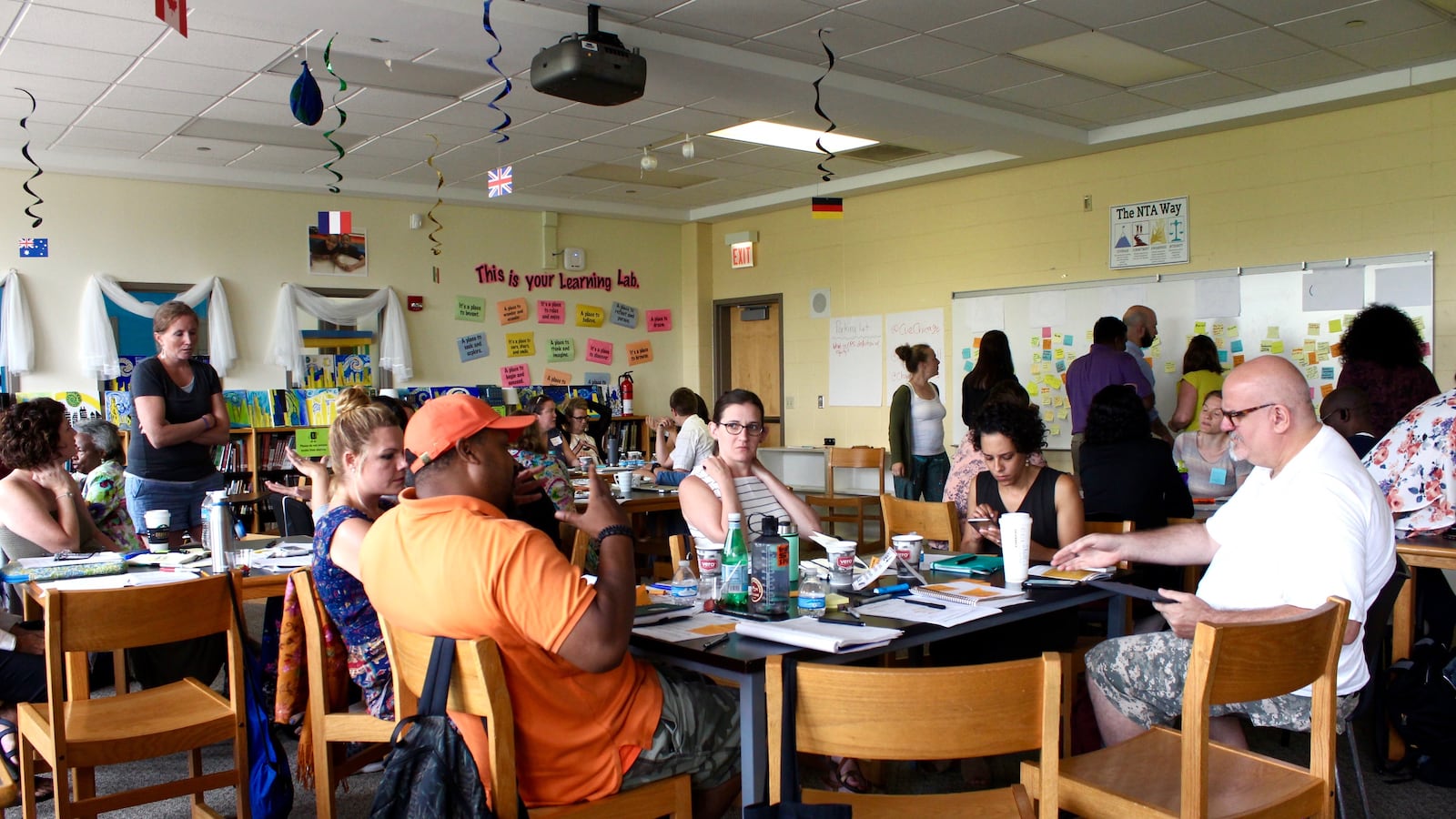The teachers, parents, and community members gathered in the library of National Teachers Academy quickly zeroed in on a common issue their schools faced – the parents involved in their schools didn’t reflect the racial makeup of the student bodies.
Coming from all over the city, the 30-plus attendees arrived early on Saturday morning for a summit hosted by non-profit Chicago United for Equity, which meets with community members across the city to arm them with tools for tackling inequity. In Chicago, whites make up 10 percent of the student population, but half the teachers in the district are white and anecdotally, white parents tend to be overrepresented in parent groups and school governance.
Even at the event, attendees struggled with what strategies would be appropriate to bring back to their schools, comprising mostly people of color. Most of the attendees were white women, a small representation of the diverse schools they represented.
“We hold these events with the intention of cultivating a support network, whether that’s in one neighborhood, or across three neighborhoods that are facing similar issues,” said Niketa Brar, executive director of Chicago United for Equity.
Brar shared a framework for measuring and following through with plans for promoting equity. Representatives from the Chicago Lawyers’ Committee for Civil Rights and education non-profit Generation All kicked off the day by leading the attendees to define equity and identify instances of racial inequity in their schools.

With that framework in mind, here’s what the groups came up with:
Create more channels for getting parent input at Local School Council meetings
Parents and teachers from the Lakeview/Bucktown region started by looking at how parents can voice concerns to the Local School Council, the governing bodies of each school led by parent and community members. Even though there is no racial breakdown available of the councils’ membership, anecdotally, it’s often white parents who sit on them.
Nicole Abreu Shepard, a newly elected parent representative on Jahn School of Fine Arts’ council, said that Jahn has a majority Hispanic student population, but the involved parents are mostly white. Many Hispanic parents don’t attend council meetings and sometimes “it’s seen as apathy,” she said.
“But,” she added, “there’s no Spanish translation, no child care” at the council meetings, and so it can be inconvenient for Hispanic parents to attend.
Shepard suggested that councils set up an online submission page for parents to type in their concerns and inquiries, which can be translated during council meetings, and also allow parents to call in to meetings. She said “these physically tangible changes in the short term make parent participation much more accessible.”
Focus groups aligned around race can further drive parent engagement
Community members of Peirce Elementary School and Nicholas Senn High School in the Edgewater/Andersonville region, both with majority student populations of color, proposed creating focus groups of parents of the same race.
Peirce parent Megan Brand said that similar to Jahn, “Peirce is a very diverse school but mainly white affluent families are involved.”
In intimate and private discussions, parents of color could more candidly discuss their ideas for their school and crystallize plans to present to the school’s administration.
Brar from Chicago United for Equity added that the discussions can be open-ended at first, but as parents begin thinking about taking action, “this engagement strategy on the front end can become a council or committee later on.”
Meet with community groups to offer a fuller picture of what their school has to offer
Community members involved with schools on the South and Southwest Side, Kenwood High School and Curie Metropolitan High School, focused on addressing the negative perceptions of their schools.
Alejandro Espinoza, a community representative on Curie’s Local School Council, said that he plans to meet with groups such as homeowners associations and neighborhood media representatives who often portray a negative image when they look at the district. He said “the stories they tell are not always the most factual.”
Curie is “more than an SAT score,” he added, and Curie holds many festivals and events throughout the year that these organizations don’t often talk about.
Don’t wait until the suspension to ask what’s wrong
Parent and community members of Bret Harte Elementary School in Hyde Park rallied their conversation around punitive discipline, which often disproportionately affects black students. At Bret Harte, which has a majority black student body, they said they’ve seen too many students receive suspensions.
Emily Nothnagel, a teacher at Bret Harte, said that the school should systematically track students’ misconduct reports and minor infractions, so school leaders can intervene and talk with students and their families before outright suspending students.
She added that this is important especially in elementary schools, where school administrations might not track student behavior as closely as high school administrations would.

